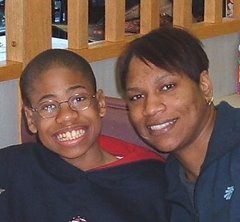ABSTRACT
Too Poor to Get Sick? The Implications of Place, Race, and Costs on the Health Care Experiences of Residents in Poor Urban Neighborhoods
Sandra L. Barnes
http://www.medicalnewstoday.com/medicalnews.php?newsid=22305
Literature suggests that the poor often face a myriad of health care constraints and health problems. This study uses bivariate and multivariate analyses to examine the effects of systemic factors, such as the availability of health-care providers and neighborhood poverty, on individual health decisions for a sample of African-Americans, Whites, Mexicans, and Puerto Ricans in poor Chicago neighborhoods. Results show that Medicaid usage and having a regular physician increase the number of days home ill and days hospitalized, while frequenting clinics decreases such activity. Additionally, residents in more impoverished urban areas are less likely to stay home ill. Differences in health profiles and providers are also evident based on race/ethnicity. These findings illustrate the important relationship between macro-level factors and specific health choices many resident in poor urban areas make at the micro-level.
Contact: Amy Patterson - Neubertapatterson@purdue.edu
765-494-9723
Purdue University - http://www.purdue.edu/
For more information and resources on autism, go to:
http://www.autismconcepts.com/.
Forget what you haven't heard… Family site shares news, resources, announcements and free or low-cost ways to help us manage day-to-day living with autism.
Crystal Brown

About Me

- Crystal
- AutismConcepts.com and Child-Autism-Parent-Cafe.com share a large collection of useful autism information, resources, and how-to articles written by authors who are touched by autism, offering practical solutions to families. Particularly minority and underserved families and caregivers who may not know what to do or where to go for help.
MJ And Me

Blog Archive
-
▼
2005
(194)
-
▼
April
(12)
- Experimental Drug for GI Dysfunction in Autism
- Study: Too Poor to Get Sick? The Implications of P...
- Study: Comparison of Blood & Brain Mercury Levels ...
- New report suggests that mercury-laced preservativ...
- Study Says Ethylmercury [Thimerosal] is Most Toxic...
- Study: Promise of lowering costs for treating autism
- NYS: Free Legal Resource Website for NYS
- Report to Congress on Autism
- Study: Psychological reasoning begins earlier than...
- Help Your Child Learn to Play Piano - Free!
- Playing Politics At Kids' Expense
- ADAPT Community Statement re: Terry Schiavo
-
▼
April
(12)